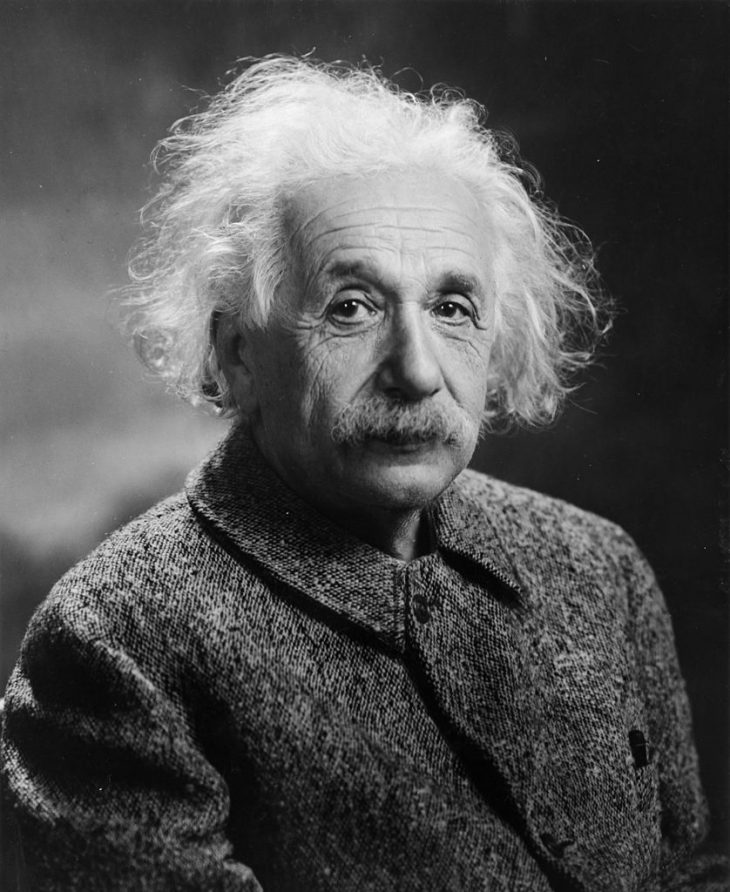
When people hear the word “genius”, Albert Einstein’s name often comes to mind. Among his most popular works is the theory of relativity, one of the main foundations of modern physics. He also famously developed the mass-energy equivalence or E=mc2, which is the most famous equation in the world. Albert Einstein’s numerous scientific breakthroughs had changed the way people see the universe and how it operates. Get to know this exceptional physicist with these brilliant Albert Einstein facts.
- Albert Einstein was born on March 14, 1879 in Ulm, Württemberg, Germany.
- In 1896, Albert Einstein entered the Swiss Federal Polytechnic School in Zurich, Switzerland to earn a diploma in teaching mathematics and physics. He was 17 years old.
- Einstein received his federal teaching diploma in 1900.
- His birthday, March 14 (3/14), is often celebrated as “Pi Day” because it bears the first three digits of the mathematical constant pi (π).
- Throughout his life, Albert Einstein published upwards of 300 scientific papers and 150 non-scientific works.
- Einstein never took a formal IQ test, and so his actual IQ still remains a topic of speculation.
- Albert Einstein was his full name; he did not have a middle name.
- He grew up in a secular Jewish household.
- Einstein had a profound influence on modern physics.
- His father was Hermann Einstein, and his mother was Pauline Koch.
- Einstein’s works contributed to breakthroughs in nuclear energy, electromagnetism, and quantum mechanics.
- Albert Einstein was an agnostic, not an atheist. He also didn’t believe in an afterlife, stating that one life was enough for him.
- The Nazis rejected his theory of relativity and dismissed it as “Jewish science”.
- Einstein loved taking long, daily walks outside.
- His ultimate goal was to discover a unified field theory that can describe all the fundamental particles and forces in a single model.
- He wrote an obituary for Emmy Noether saying she was a brilliant mathematician whose works were often overlooked just because she was a woman.
- In 2015, scientists detected and confirmed the existence of gravitational waves. This was nearly 100 years after Einstein predicted them.
- He took great interest in philosophy at only 13 years of age, and he favored Immanuel Kant’s works.
- Despite not having any part in its discovery, Albert Einstein inspired the name for Einsteinium, the 99th element in the periodic table.
- Isaac Newton, James Clerk Maxwell, Arthur Schopenhauer, and David Hume are among Albert Einstein’s influences.
Einstein was born with a misshapen head.
When Albert Einstein was born in 1879, he had a large, misshapen head along with a grossly overweight body. This caused concern to his parents, who were terrified that he might be deformed. Upon first seeing him, his grandmother even exclaimed that he was “much too fat!” His physician didn’t worry too much about it, however, and his head started taking a normal shape a few weeks later.
He was a late talker.
One of the most interesting Albert Einstein facts is that he was a late talker—not quite what you’d expect from one of the world’s most famous geniuses. His parents worried that he might have had a mental disability because he didn’t speak until he was around four years old. Because of this, social theorist Thomas Sowell would later use the term “Einstein Syndrome” to describe bright children who also experience late language emergence.
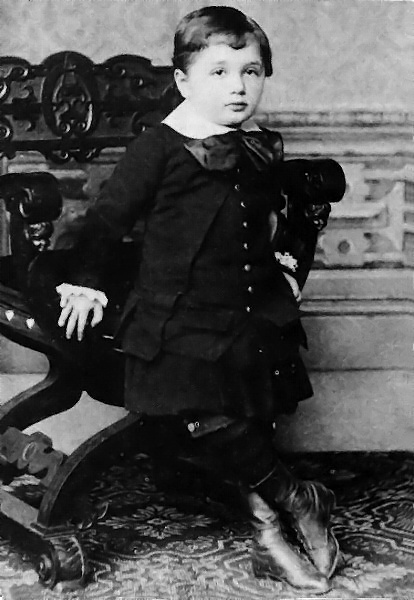
Einstein didn’t like wearing socks.
One of Albert Einstein’s many quirky habits is that he did not like wearing socks. He was quite proud of never wearing socks, and he stated this fact in some letters he wrote. When he was young, Einstein found that whenever he wore socks, his big toe would always make holes on the socks. For this reason, he stopped wearing socks altogether. He preferred wearing sandals instead of shoes. Einstein also stated that he would sometimes attend important occasions wearing high-cut boots to hide the fact that he wasn’t wearing socks.
Contrary to popular belief, Albert Einstein didn’t actually fail math.
There’s a popular urban legend that states that Albert Einstein failed math when he was young but eventually ended up being a brilliant scientist. Although it’s an inspiring story, it’s not a truthful one. He actually excelled in both math and physics at a young age, teaching himself more complex mathematics such as Euclidean geometry and algebra in the span of just one summer. At only 12 years old, Albert Einstein also discovered his own proof of the Pythagorean theorem and mastered calculus at the age of 14.
At age 16, Einstein renounced his citizenship and became a stateless individual.
Upon his birth, Albert Einstein became a citizen of the German Empire. However, when he was 16 years old, with the approval of his father, he renounced his German citizenship to avoid military service. Because of this, Einstein became a stateless individual for five years before becoming a naturalized citizen of Switzerland. He then kept his Swiss citizenship for the rest of his life.
Albert Einstein loved music immensely.
Another one of the most interesting Albert Einstein facts is that he was a lover of music. He was passionate about music for most of his life, and he even stated that he often thought in terms of music and experienced his greatest joys in music. Einstein also stated that he would likely have become a musician if he weren’t a physicist.
His mother had him learn the violin at the age of 5, but he didn’t enjoy it then. At age 13, however, he discovered Mozart’s compositions and began to take more interest in music. He even impressed a school examiner by playing Beethoven’s violin sonatas at age 17. From then on, music took a significant role in Einstein’s life, and he reportedly would refresh his mind by playing the violin.
He also loved sailing, but he wasn’t very good at it.
Einstein was still a student in Zurich, Switzerland when he first took up sailing. This became another life-long hobby of his, and he often would take to the seas as a way to think. Oftentimes, he would sail around aimlessly in the seas for many hours a day. However, this famous scientist wasn’t as adept at sailing as he was in theoretical physics. He often would lose his way or tip his boat over on his trips even in his later years. Moreover, because he didn’t know how to swim, Einstein needed other people to come and rescue him. Now that’s one of the Albert Einstein facts you have to remember!
He struggled to find work after receiving his teaching diploma.
When Albert Einstein got his teaching diploma in 1900, he spent around two grueling years trying to find a teaching job. As brilliant and intelligent as he was, he still struggled to get a job. He eventually found a job as a patent examiner at the Federal Office for Intellectual Property in Bern. Einstein worked at the patent office for seven years, and he was so efficient at his job that he also had time to work on his scientific discoveries during his time as a patent clerk.
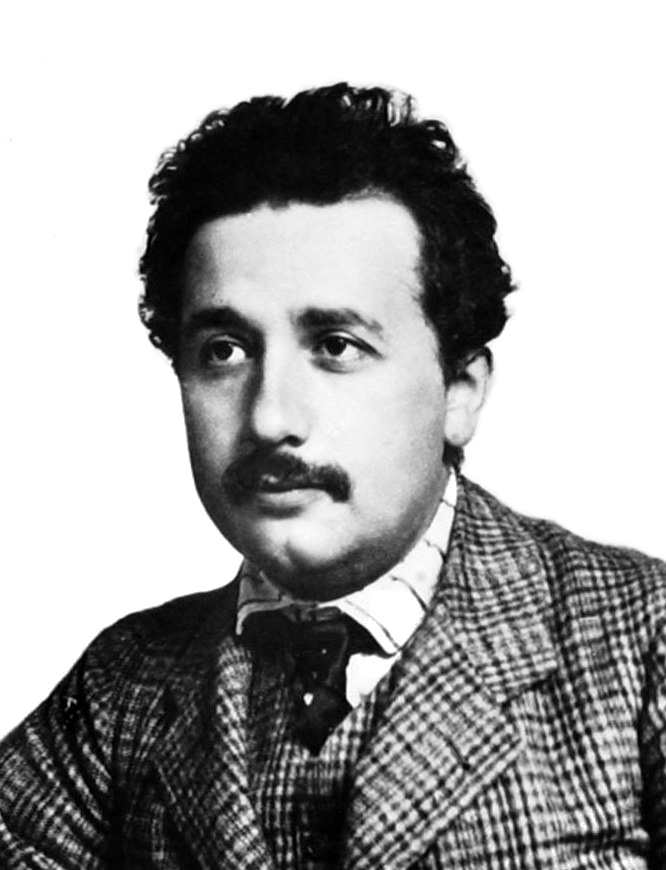
1905 was Einstein’s “miracle year”.
The year 1905 was a great year for Albert Einstein—it was his Annus Mirabilis or “miracle year”. In that year, he finished his thesis and received his Ph.D. from the University of Zürich. He also published four major works that would later revolutionize modern physics.
The Annus Mirabilis papers included his work on Brownian motion, special relativity, the photoelectric effect, and the mass-energy equivalence. All of these papers changed the way scientists view matter, space, and time. Perhaps one of the most shocking Albert Einstein facts is that he accomplished all of these when he was only 26 years old.
Albert Einstein slept for around 10 hours a day.
It’s a well-known fact that sleep is necessary to keep the brain functioning effectively, and even Albert Einstein held sleep in high regard. He reportedly slept for 10 hours a day, more than the typical person’s sleeping time of 6 to 8 hours.
He co-invented the Einstein–Szilard refrigerator.
Aside from being a scientist, Albert Einstein was also an inventor. Along with his student, Leo Szilard, he invented the Einstein refrigerator (also called the Einstein–Szilard refrigerator). They invented this type of refrigerator in 1926 and got a patent for it in 1930. The refrigerator didn’t make use of freon and didn’t have any moving parts. Although it was noiseless, durable, and inexpensive to make, it wasn’t as energy-efficient as the typical refrigerator and ultimately failed to take off commercially.
Einstein once proposed a more efficient shape for wings, but his design flopped.
Albert Einstein took an interest in aviation, but in that field, he wasn’t much of a genius. In 1916, he wrote a scientific paper suggesting a new design for aircraft wings. He wrote the proposal in the hopes of improving lift in aircraft and based his design on Bernoulli’s theorem. As with any person, however, he wasn’t right about everything. When engineers tested his design against conventional airplane wings, the conventional wings achieved lift better than Einstein’s design. How’s that for fascinating Albert Einstein facts?
He stayed in the United States because he was a target of the Nazis.
Originally, Albert Einstein travelled to the United States for a two-month work trip, and he brought his wife, Elsa, along with him. While he was there, Nazi movements rose in Germany and targeted Einstein and his ideas. Nazi scientists even denounced Einstein’s theory of relativity and branded it as “Jewish science”. His works were among those burned in the famous Nazi book burnings.
There were also bounties on Einstein’s head, with one magazine even having his face on the cover, along with the words “not yet hanged”. Adolf Hitler also became chancellor in 1933, while Einstein was in the US. The rising tensions and anti-Semitism prompted him to realize that he cannot go back to Germany because of his Jewish roots. Einstein became a refugee and eventually applied for US citizenship in 1935. He officially became a US citizen in 1940.
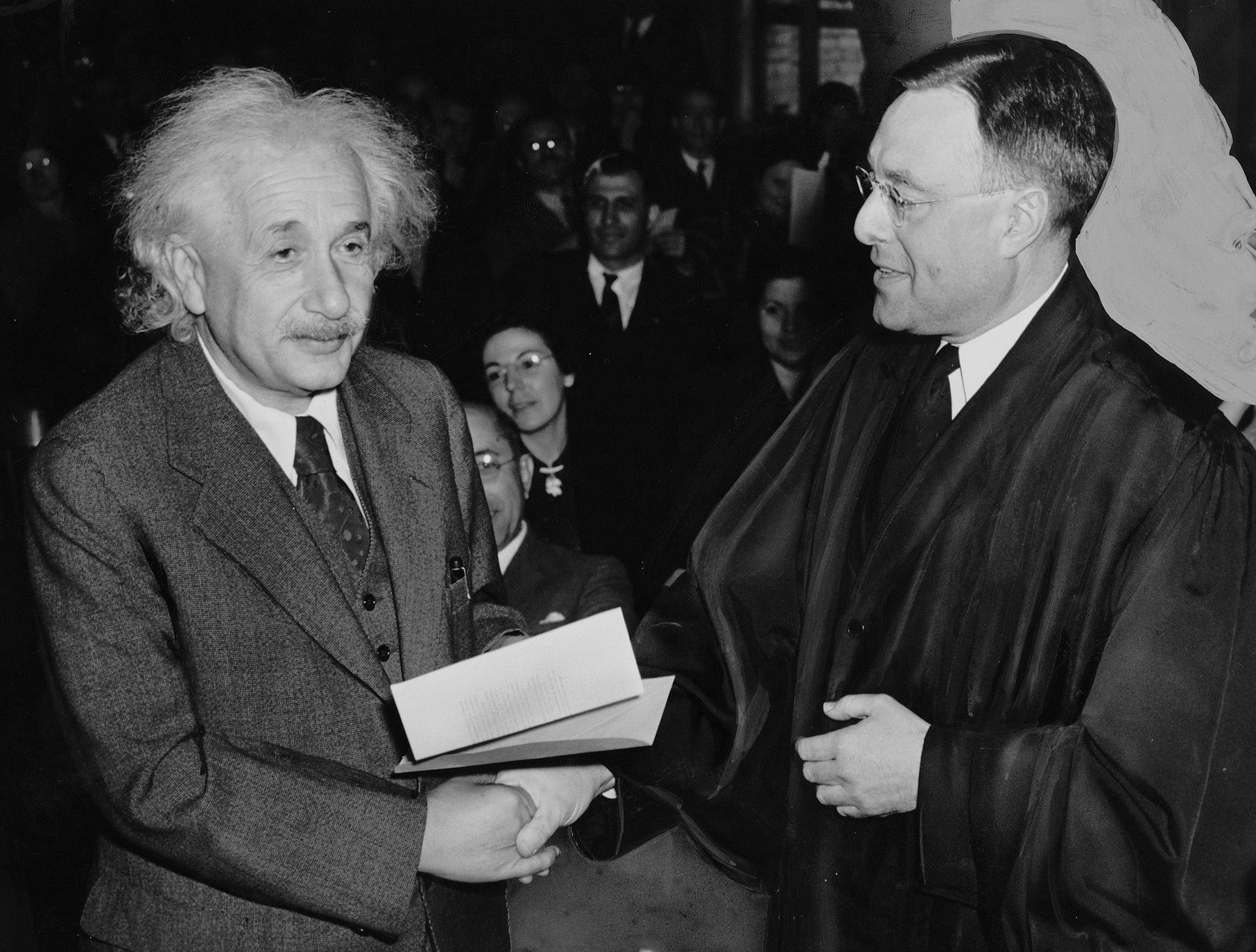
He helped save thousands of Jewish scientists.
During the Nazi rule, Albert Einstein corresponded with various leaders such as Winston Churchill, Lloyd George, Austen Chamberlain, and İsmet İnönü. In their correspondence, Einstein convinced the leaders to seek out Jewish scientists in Germany and employ them in their respective countries. As a result, Einstein helped save thousands of lives. Truly among the most remarkable Albert Einstein facts.
He was a civil rights activist.
One of the more often-overlooked Albert Einstein facts was that he was a civil rights activist who fought against war and racism. As a Jewish scientist during the height of anti-Semitism in Germany, he was well aware of the injustices in society. He advocated for civil rights on countless occasions and empathized with the people who experienced discrimination, especially in the United States.
Einstein bore witness to the racial discrimination that was rampant in the US, particularly towards African Americans. In a speech he gave at Lincoln University, he called racism a “disease” and openly spoke out against it. He also endorsed a campaign in support of the Scottsboro Boys, nine teenagers in Alabama who faced false accusations and unjust trials because of racial discrimination.
Another testament to Albert Einstein’s advocacies was his friendly relations with African Americans. In 1937, the Nassau Inn in Princeton denied a room reservation to the black singer Marian Anderson because of her skin color. Einstein then welcomed her as a guest in his home and thus formed a lifelong friendship with her. He also used his fame to support the National Association for the Advancement of Colored People (NAACP) and its founder, W.E.B. Du Bois. When Du Bois faced trial for being a “foreign agent”, Einstein volunteered to appear as a character witness. Upon receiving word of this, the judge ultimately dropped the case because of the potential publicity.
He advocated against nuclear warfare despite indirectly playing a part in its creation.
Following recent scientific breakthroughs during the Second World War, Albert Einstein was aware that the Nazis had the technology necessary to create nuclear weapons. Einstein then wrote a letter with Leo Szilard warning US President Franklin D. Roosevelt of the possibility of nuclear warfare. His correspondence with President Roosevelt eventually led to the launch of the Manhattan Project, which sought to win the race for the world’s first nuclear weapons.
Einstein, who was mostly a pacifist and an advocate against war, regretted recommending the creation of atomic bombs to Roosevelt. He openly advocated against nuclear warfare. Together with other intellectuals and scientists, he later signed a manifesto that showcased the grave risks of nuclear weapons.
The FBI spied on Albert Einstein for decades.
Because of his reputation as a famous scientist and social activist, the Federal Bureau of Investigation (FBI) kept tabs on the actions of this German-born physicist. Since 1932, the FBI kept a secret dossier on Einstein because of his ties with various peace and socialist organizations. They suspected the scientist of being a radical and a communist, and the FBI director J. Edgar Hoover even wanted to keep Einstein out of the US. At the time of Einstein’s death, the FBI’s dossier contained 1,427 pages.
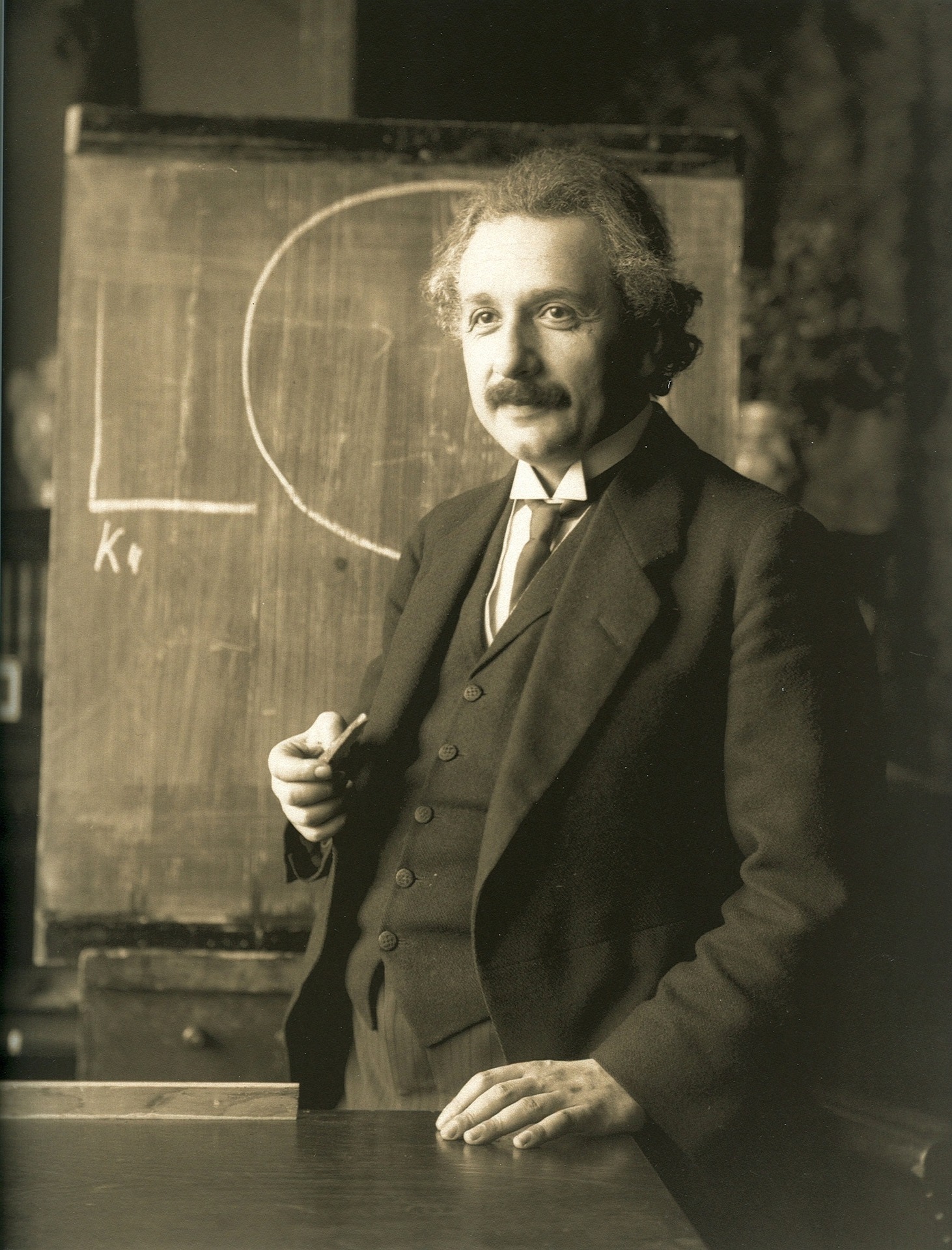
The Prime Minister of Israel asked him to be the president of the country, but he declined.
Although he wasn’t a citizen of Israel, Albert Einstein was involved in Zionist causes and supported the establishment of a Jewish national homeland in Palestine. However, he opposed the idea of a state with a border and an army.
In 1952, Israel’s first president, Chaim Weizmann, died while he was still in office. To replace him, the Prime Minister of Israel asked Albert Einstein to assume the position of president. The position was mostly a ceremonial one, but Einstein declined the offer. He found the offer deeply moving, but he explained that he couldn’t accept it because he mostly worked on more objective matters and felt he wasn’t adept at matters concerning the job of the president.
His first wife was also a brilliant physicist.
Albert Einstein’s first wife, Mileva Marić, was also a physicist and mathematician. Some historians even regard her as Albert Einstein’s unsung collaborators, stating that she helped Einstein form concepts in his Annus Mirabilis papers. Other historians contest this claim, however, and argue that her contributions were not too significant.
When Einstein was still studying to get his diploma in teaching, Marić was the only woman in their class. Higher academic institutions didn’t readily accept women at that time and had numerous restrictions regarding the admission of women. Given these strict rules, her admission at the Zurich Polytechnic was a testament to her talents.
Einstein became friends with Marić, and their friendship eventually turned into romance. In one of his letters, Einstein even told Marić that he preferred studying with her. The lovers eventually got married in 1903, and Marić reportedly stopped her scientific ambitions, save from her discussions with Einstein.
Their marriage had its fair share of problems. Albert Einstein wrote a list of conditions that his wife must follow, such as serving him three meals a day in his room, keeping his clothes in order, and not expecting any affection from him. Other factors also put a strain on their marriage, such as their move to Berlin and Einstein’s correspondence with his cousin and eventual lover, Elsa. The two divorced in 1919. To help with the care of their sons, Albert Einstein transferred the money he got from the 1921 Nobel Prize to Marić.
He likely never saw his first child.
The correspondence between Albert Einstein and Mileva Marić revealed that they had a daughter in 1902, a year before their marriage. Marić gave birth to her in Novi Sad, Serbia, where she stayed with her parents. They referred to this child as “Lieserl”. When Marić traveled back to Switzerland, she didn’t have Lieserl with her. Some sources suggest that she died of scarlet fever in infancy, while others speculate that the girl was given up for adoption. Einstein likely never saw his daughter in person.
His second son had schizophrenia.
After Lieserl, Einstein and Marić had two sons, who were Hans Albert and Eduard. At the age of 20, Eduard Einstein suffered from a nervous breakdown while studying to become a psychiatrist. Doctors diagnosed him with schizophrenia, and Marić took care of him. She also sent him to various psychiatric institutions, and he became a permanent resident at a psychiatric clinic in Zurich after his mother died in 1948. Albert Einstein regularly corresponded with Eduard, whom he lovingly called “Tete” (from the word petite).
Albert Einstein’s second wife was his cousin.
After Albert Einstein’s divorce from Mileva Marić, Einstein married for a second time. This time, he married Elsa Einstein, his cousin. Their mothers were sisters, and their fathers were first cousins. They began their relationship in 1912, while Albert was still married to his first wife. The two married on June 2, 1919, around three and a half months after Albert’s divorce. Albert and Elsa did not have children of their own, but they raised Elsa’s daughters from her first marriage, Ilse and Margot. Truly among the Albert Einstein facts you have to remember.
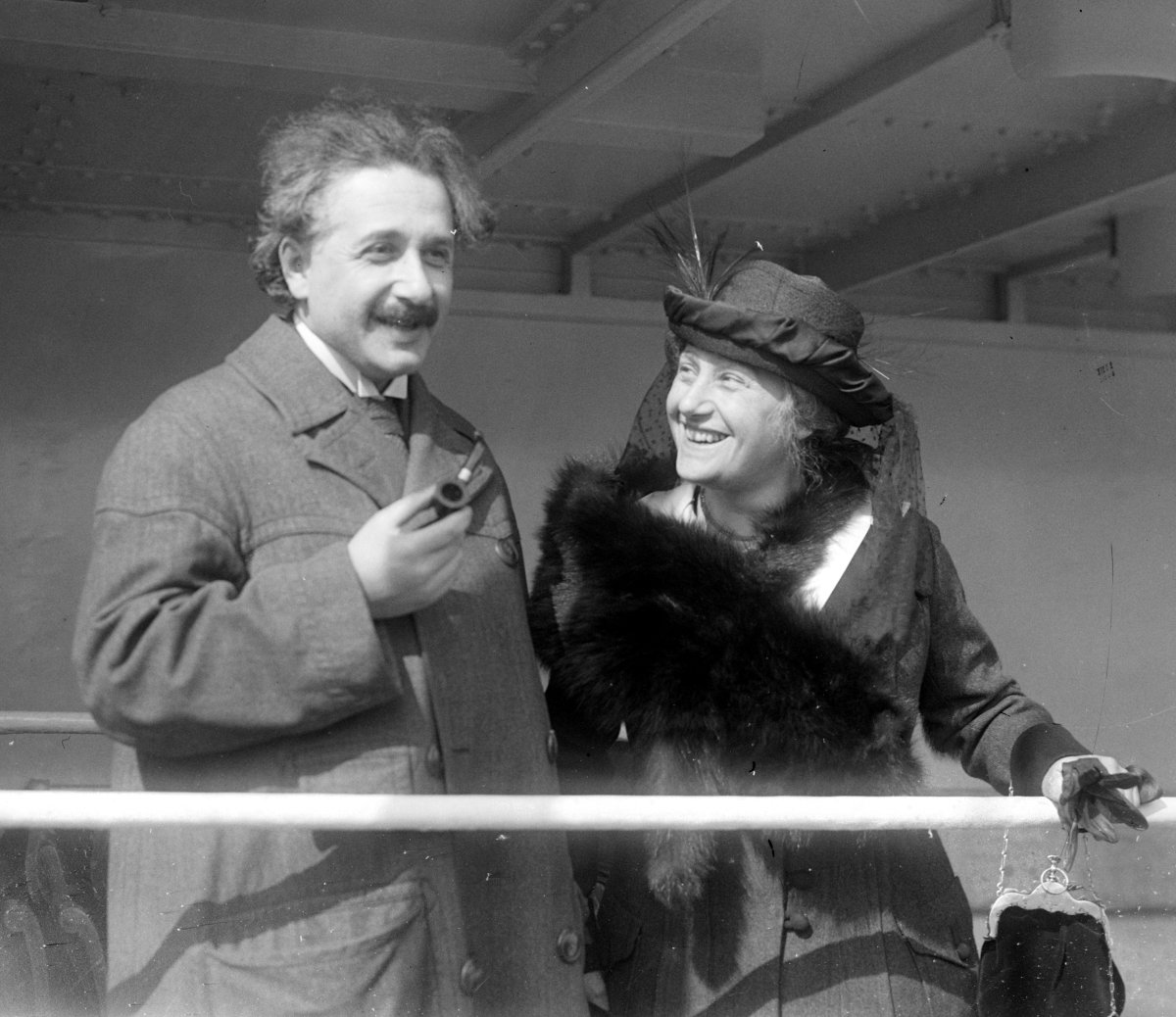
His works on the photoelectric effect earned him the 1921 Nobel Prize in Physics.
Although Einstein is most famous for E=mc2 (the mass-energy equivalence) and the theory of relativity, he didn’t win the Nobel Prize for these. Einstein actually won the 1921 Nobel Prize in Physics because of his work on the photoelectric effect. Although he did not discover the phenomenon, his explanation of the laws of the photoelectric effect heavily influenced physicists’ understanding of light and its properties.
Robert Millikan conducted experiments to disprove Einstein’s theory—he ended up confirming it.
One of the top scientists of the US, Robert Millikan, was skeptical of Einstein’s idea that light existed both as a particle and as a wave. Millikan contested the particle theory because the majority of scientific papers prove that light exists as a wave. Seeking to disprove Einstein’s theory, Millikan spent a decade conducting experiments on light. The results of his experiments ended up confirming Einstein’s theory, and Millikan won the 1923 Nobel Prize in Physics for his work on the elementary electric charge and the photoelectric effect.
Albert Einstein predicted the fifth state of matter, the Bose-Einstein condensate.
You likely have heard of the four common states of matter, which are solid, liquid, gas, and plasma. There are other lesser-known states of matter, however, which include the Bose-Einstein condensate. Between 1924 and 1925, Albert Einstein and Satyendra Nath Bose predicted this so-called “fifth state of matter”, which exists in temperatures close to absolute zero (−459.67°F, −273.15°C).
The photo of Einstein sticking his tongue out was taken on his 72nd birthday.
One of Einstein’s most recognizable photographs is the one where he showcases his goofy side—the image of him sticking his tongue out while smiling. The photograph was taken on March 14, 1951, Einstein’s 72nd birthday.
Arthur Sasse, a photographer from the United Press International (UPI), originally wanted Einstein to smile for the camera. However, Einstein had already smiled for multiple photographers that day and decided to stick his tongue out instead. Einstein loved the photograph and asked UPI to send him nine copies for personal use. He signed one of the copies for a reporter, and in 2009, the signed photograph sold for $74,324.
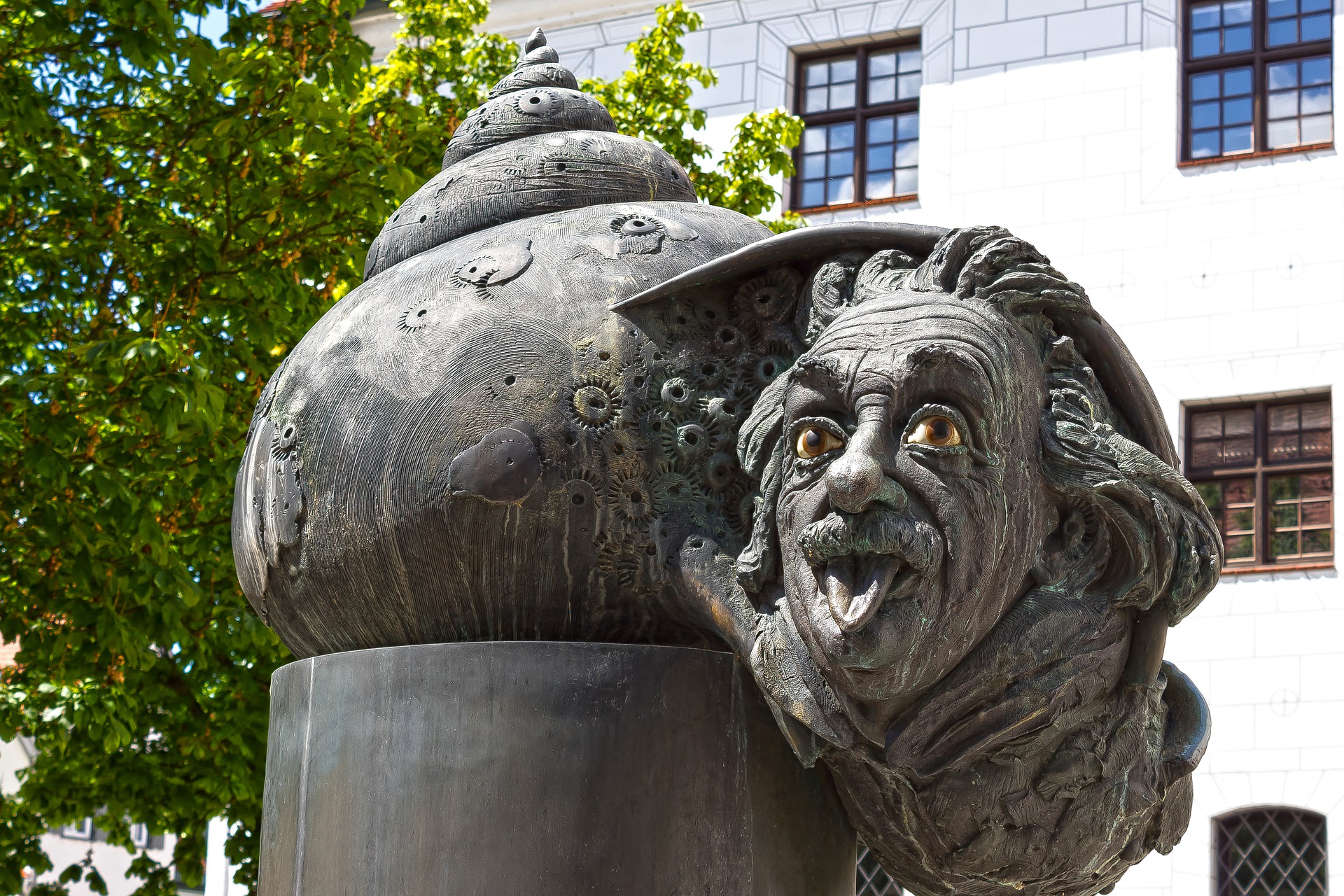
He died in 1955 due to an aneurysm.
Einstein suffered from internal bleeding due to an aneurysm in his abdominal aorta (the largest artery in the abdomen). Doctors could’ve prolonged his life, but Einstein refused surgery. The scientist stated. “I want to go when I want. It is tasteless to prolong life artificially. I have done my share; it is time to go. I will do it elegantly.” Albert Einstein died on April 18, 1955 in the Penn Medicine Princeton Medical Center in New Jersey. The brilliant physicist was 76 years old when he passed away, and he reportedly kept working until hours before his death.
Thomas Stoltz Harvey stole Albert Einstein’s brain after his death.
This is perhaps one of the most shocking and controversial Albert Einstein facts. After Albert Einstein’s death in 1955, the pathologist Thomas Stoltz Harvey was in charge of the autopsy. Harvey removed Einstein’s brains and eyes without his family’s permission, hoping that neuroscientists can figure out what made Einstein so intelligent.
He preserved the brain and cut it into 170 pieces, sending some sections to select neuroscientists and pathologists. When Einstein’s family learned about this, they eventually gave him permission to continue under the condition that the study should not be sensationalized in the media.
Studies on Einstein’s brain showed that his brain size and weight were within normal limits. However, there were some differences compared to the normal brain. For example, the region of the brain responsible for spatial and numerical processing was proportionally larger than usual. Some studies also revealed that he had more glial cells in his brain compared to other male brains. These cells are responsible for nutrition in the brain and the formation of myelin, which assists in faster electrical transmission in neurons.
His last words remain a mystery.
Albert Einstein’s last words are infamously lost in translation and will forever remain a mystery. In his final moments, he muttered some words in the German language. The attending nurse, unfortunately, did not speak German and could not understand what the great scientist said.
Albert Einstein has a lot of popular quotes—many of which he didn’t actually say.
It’s no secret that Albert Einstein was an intelligent man whose works still resonate in science and history books. Although his last words are a mystery, many of his words now live on as popular quotes. However, many quotes associated with his name didn’t actually come from him. Some of these misattributed quotes include “You do not understand something unless you can explain it to your grandmother.”, “I fear the day that technology will surpass our human interaction.”, and “Everyone is a genius. But if you judge a fish by its ability to climb a tree, it will live its whole life believing that it is stupid.”
Was this page helpful?
Our commitment to delivering trustworthy and engaging content is at the heart of what we do. Each fact on our site is contributed by real users like you, bringing a wealth of diverse insights and information. To ensure the highest standards of accuracy and reliability, our dedicated editors meticulously review each submission. This process guarantees that the facts we share are not only fascinating but also credible. Trust in our commitment to quality and authenticity as you explore and learn with us.
